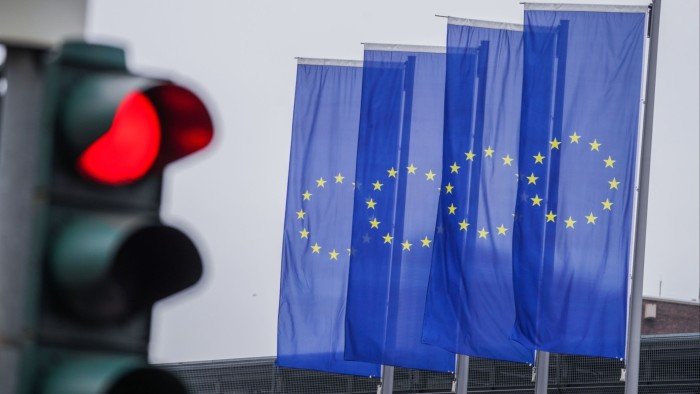Unlock the Editor’s Digest for free
Roula Khalaf, Editor of the FT, selects her favourite stories in this weekly newsletter.
The European Central Bank has sold more than €150mn of bonds of Worldline SA, an embattled payments processor that was recently accused of turning a blind eye to fraudulent customers, according to people familiar with the sales.
The ECB, which acquired the bonds as part of its quantitative easing programme a number of years ago, began sounding out credit investors towards the end of last week and sold the debt on Monday. It was still marketing some of the company’s bonds to investors on Tuesday and intends to sell its entire stake, the people said.
Worldline’s shares tumbled 38 per cent in a day in late June after reports by European journalism network EIC that the company had ignored warnings and continued to do business with prohibited and other high-risk customers.
The company said in a statement in June in response to the EIC’s allegations that “according to the latest international schemes reports, Worldline’s fraud ratio is below the industry average” and that its “top management and board of directors are fully committed to strict compliance with regulations and risk prevention standards”.
The ECB does not often sell corporate bonds it holds, but it has previously dumped distressed credits such as Steinhoff — after the company disclosed an accounting irregularity — and Spanish supermarket Dia. It has no obligation to sell out of debt that is rated below investment grade.
The ECB and Worldline declined to comment.
A spin-off from French IT group Atos and one of the world’s largest payments specialists, Worldline has grown rapidly through acquisitions but has been weighed down by faltering revenues and controversy around its clients in recent years.
It has hired an external firm to audit its portfolio of risky clients following the allegations that it retained some fraudulent clients, while the Brussels public prosecutor has opened a money-laundering probe into its Belgian unit.
Its shares have fallen sharply since peaking in early 2021, taking its market capitalisation down from almost €23bn to about €740mn currently.

The ECB purchased the bonds when they were rated as investment grade as part of its massive asset purchase programme. Chunks of a €500mn bond due in 2027 and another €600mn note maturing in 2028 remained on the central bank’s books immediately after the allegations were made against the French company in June.
Both Worldline’s 2027 and 2028 bonds each fell by about 2 cents on the euro towards the end of last week but have since recovered slightly. Following June’s report, some of its bonds fell about 10 cents on the euro to about 85 cents.
Worldline’s bonds were downgraded to junk last month by rating agency S&P, which said the company would be affected by “terminations of merchants in the high brand risk portfolio” as well as “hardware delivery issues”.

